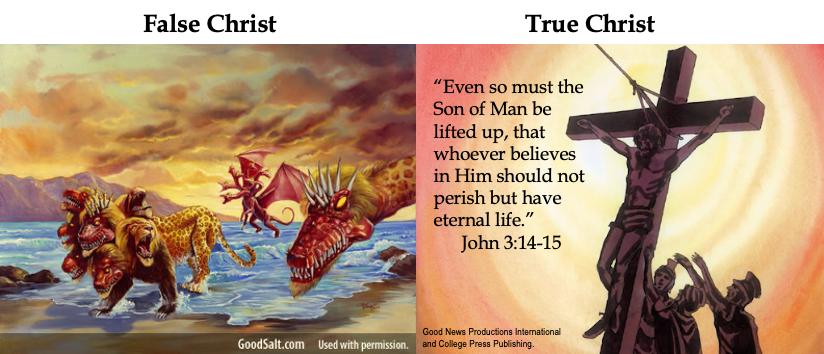“Now this is the confidence that we have in Him, that if we ask anything according to His will, He hears us.” I John 5:14
As John approaches the end of his letter, he wants to focus on a topic he introduced at the beginning of this epistle: “3 that which we have seen and heard we declare to you, that you also may have fellowship with us; and truly our fellowship is with the Father and with His Son Jesus Christ. 4 And these things we write to you that your joy may be full.” (I John 1:3-4). John wrote about intimacy or fellowship with God and one another so his readers’ “joy may be full” (1:4). When believers in Jesus walk in the light (1:7), confess their sins (1:9), keep God’s commandments (2:3-5; 3:24), abide in Christ (2:6, 24, 27-28), love one another (2:9-11; 3:11-23; 4:7-5:3), hate the world (2:15-17), acknowledge Jesus is God’s Son (2:23; 4:2-3, 4:15), practice righteousness (2:29-3:10), listen to and obey apostolic teaching (2:18-19; 4:6), and avoid idolatry (5:21), they can experience this fullness of joy.
In his epistle, John introduced the truth that answered prayer is based on a twofold commandment: “And this is His commandment: that we should believe on the name of His Son Jesus Christ and love one another, as He gave us commandment.” (I John 3:23). John connects faith and love in this single commandment.Hence, this commandment is one that only Christians can keep because it includes believing “on the name of His Son Jesus Christ” which gives eternal life to all who believe in Jesus (5:1,13) and views other believers as their Christian brothers and sisters so they can know whom to love.
Since prayer is also an expression of faith in “the name of His Son Jesus Christ” (5:13b), John resumes his focus on prayer in 5:14-17. “Now this is the confidence that we have in Him, that if we ask anything according to His will, He hears us.” (I John 5:14). In the context, John began to focus on the truth that God’s commands are not a burden because faith in God’s Son is the secret of spiritual victory over the world (5:3-5). It is natural then to suppose that John was thinking especially, though not exclusively, of a Christian’s right to ask God for help in keeping His commands when John speaks of asking “anything according to His will” (5:14). 1
Anderson writes, “The entire prayer discussion comes out of the ‘life’ discussion in 1 John 5:11-13. There he indicates that our initial experience of faith (‘who believe’ = believers; the Greek construction here does not refer to present, on-going faith, but rather the initial, one-time faith that gave us eternal life) can be followed by subsequent experiences of faith ‘in the name of the Son of God’ (it is this phrase that reminds him of Christ’s prayer promises in the Upper Room).
“Another way of saying it would be this. After our initial faith in the name of Jesus, which gave us our first experience of eternal life, our subsequent expressions of faith in His name (when we pray) will bring new experiences of eternal life (joy). We need to keep before us the understanding that the primary emphasis in ‘eternal life’ is quality, not quantity. Remember, unbelievers exist forever. It’s their quality of existence which differs so from the believer who dwells in the presence of the Lord.” 2
John’s wording in 5:14-15 is reminiscent of the joy Jesus spoke of the night before His crucifixion: “22 Therefore you now have sorrow; but I will see you again and your heart will rejoice, and your joy no one will take from you. 23 And in that day you will ask Me nothing. Most assuredly, I say to you, whatever you ask the Father in My name He will give you. 24 Until now you have asked nothing in My name. Ask, and you will receive, that your joy may be full.” (John 16:22-24). Jesus is speaking of a full joy that is based on prayer in His name. Praying in Jesus’ name is not a magical formula that we add at the end of our prayers. To pray in Jesus’ name means we pray what Jesus would pray to accomplish God’s will and bring Him maximum glory.
This brings us back to I John 5:14 which speaks of praying “anything according to His will” (5:14). “To do something in someone’s name means to act on his authority (cf. John 5:43; 10:25). It has nothing to do with simply tacking onto our prayers a phrase like ‘in Jesus’ name’. Praying in Jesus’ name means to ask… according to His (God’s or Christ’s) will. If this is done, believers can have confidence that…He hears” 3 them favorably “because we are His children asking for help to do His will. He will always grant that kind of request.” 4
Contextually, John is thinking of God’s revealed “will” as it pertains to His commandments (5:3-13; cf. 3:23). God’s commandments reveal His will. For example, God commands us to love one another (I John 3:11, 23; 4:7, 11-12; cf. John 13:34-35). When a believer asks God to help him love another Christian, he can have “confidence” God favorably “hears” this request because this is “His will” (5:14). “And if we know that He hears us, whatever we ask, we know that we have the petitions that we have asked of Him.” (I Joh. 5:15). Furthermore, John says we can also “know that we have the petitions” or requests “that we have asked of Him” for assistance to do His will by loving other Christian brothers or sisters. These requests will be granted because they are according to His revealed will. 5
When we pray according to God’s revealed will in the Bible, we can have the confidence that He hears us favorably. This would include praying…
- For abstinence from fleshly lusts that war against the soul (I Pet. 2:11)
- For abstinence from sexual immorality of any kind (I Thess. 4:3)
- For deliverance from this present evil age (Gal. 1:4)
- For the giving of thanks in everything (I Thess. 4:8)
- That we silence the ignorance of foolish men by doing good (I Pet. 2:15)
- That if we suffer it is for doing good and not for doing evil (I Pet. 3:17)
- For the power to share the gospel of Christ starting at your current location and moving out to the ends of the earth (Acts 1:8; Mark 16:15)
- For clarity, courage, opportunities, and protection to share the gospel of Christ (Acts 4:29, 31; Col. 4:3-4; 2 Thess. 3:2-3)
- For the making of disciples of Christ (Matt. 28:19-20)
- For personal holiness that progressively reflects God’s holiness (I Pet. 1:15-16)
- For living in an understanding way with one’s spouse (I Pet. 3:1-6)
“God wants his Word to be done, so pray for it to be done in your life and in the lives of others. Prayer is a toll-free number; the tab is picked up at the other end.” 6
Anderson gives us an illustration of praying in Jesus’ name: “During the Civil War two friends found themselves under heavy fire. One of them was wounded. When his friend came to his aid, the wounded soldier pulled a small card out of his pocket and painstakingly wrote a note on the back of it. Then he looked at this friend and said, ‘If I don’t make it out alive, and you ever have a need, please go to my father. He’s a wealthy man, and I’m sure he would be willing to help you.’
“Unfortunately, the wounded soldier did die. His friend survived, and years later lost everything he had. In desperate straits, he remembered the card his friend had given him. He pulled it out of wallet and saw that it was the business card of his dead friend’s father. He looked him up and gave his name to the secretary. She went into the busy man’s office and came out with bad news, ‘I’m afraid Mr. Billings will be tied up in meetings most of the day.’ ‘That’s OK,’ said the desperate man, ‘I’ll just wait here.’ The day wore on. This former soldier was desperate, so he gave the secretary his card again and asked to see her boss for only five minutes. She took the request into her employer but came out with the same bad news. ‘Mr. Billings will be tied up all day. He simply doesn’t have time to see you.’
“Completely defeated and discouraged, the young man got up to leave, and then he remembered the card in his wallet from his friend. He pulled it out and read the back of the card to see what his friend had written. There in faded script was a note to Mr. Billings: ‘Dad, if this card every gets to you, please help the bearer. He’s my best friend and stayed with me until I died. Signed, Your son, Charlie.’ With new hope, he handed the card to the secretary and asked her if she would give this to her boss. Within seconds, Mr. Billings bounced out of his office and said, ‘Why didn’t you send this card in hours ago. I would do anything, for Charlie’s sake.’
“The Father’s infinite love for His Son has been transferred over to us. He is especially touched by those who are His Son’s best friends because they keep His commandments. And He wants to manifest His love for them for the sake of His Son. That’s the spirit of the promise to answer prayer requests in Jesus’ name. Our heavenly Father is willing to do most anything for Jesus’ sake.” 7
Our heavenly Father is eager to answer His children’s prayers when they align with what Jesus would pray. It is a top priority for the Godhead that God’s children love one another as Jesus has loved them. When we pray for God’s help to enable us to love our Christian brothers and sisters, we can be confident that He hears us and will grant us the assistance we need to obey His commandment.
Some Christians are easier to love than others. If a brother or sister in Christ has deeply hurt us, we will probably be more inclined to ask God to help us love that person. We might pray in this way:
Prayer: Father God, I know it is Your revealed will that I love so and so. But the pain they have caused me is too great for me to overcome on my own. I know You live in me, Lord Jesus. And I know it is Your will for me to love this person as You have loved me. Therefore, I pray that You would love them through me. I know You hear this prayer favorably, and I am confident that You will answer. Thank You for how You will work in and through me to show this person Your love. In the mighty name of Jesus Christ, I pray. Amen.
ENDNOTES:
1. Zane C. Hodges, The Bible Knowledge Commentary Epistles and Prophecy, Editors John F. Walvoord and Roy B. Zuck (David C. Cook, 2018 Kindle Edition), Kindle Location 4078 to 4083.
2. David R. Anderson, Maximum Joy: I John – Relationship or Fellowship? (Grace Theology Press, 2013 Kindle Edition), pg. 249.
3. See Zane C. Hodges; Robert Wilkin; J. Bond; Gary Derickson; Brad Doskocil; Dwight Hunt; Shawn Leach; The Grace New Testament Commentary: Revised Edition (Grace Evangelical Society, Kindle Edition, 2019), pg. 603.
4. Tom Constable, Dr. Constable’s Notes on I John, 2022 Edition, pg. 114 cites Thomas L. Constable, “What Prayer Will and Will Not Change,” in Essays in Honor of J. Dwight Pentecost, Edited by Stanley D. Toussaint and Charles H. Dyer (Chicago: Moody Press, 1986), pp. 99-113; and idem, Talking to God: What the Bible Teaches about Prayer (Grand Rapids: Baker Book House, 1995; reprint ed., Eugene, Oreg.: Wipf & Stock Publishers, 2005), pg. 170.
5. Hodges, The Grace New Testament Commentary, pg. 604.
6. Tony Evans, CSB Bibles by Holman, The Tony Evans Bible Commentary (B & H Publishing Group, Kindle Edition, 2019), pg. 2952.
7. Anderson, Maximum Joy, pp. 251-252.




